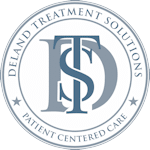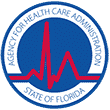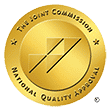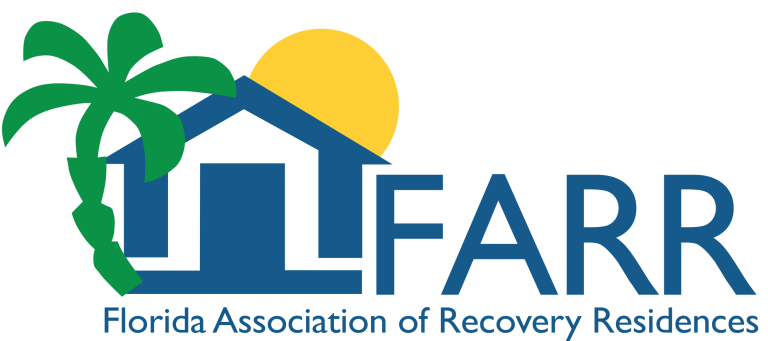Medical treatment of mental health requires a combination of therapeutic approaches alongside changes in lifestyle and pharmaceutical medication. Medications form a vital part of the treatment strategy for numerous people who have mental health conditions. Prescription and correct monitoring of drugs by medical professionals enable patients to control their symptoms, which leads to healthier and more satisfactory lives.
Comprehensive healing in mental health treatment centers along with inpatient mental health treatment programs includes medication as an essential component of their healing approach. People who want to decide better about their mental health treatments should learn about medication functions together with medication performance and medication management best practices.
Different patients need different medication approaches due to unique health situations. Nobody’s brain pattern, together with their medical history and response to treatment, varies from person to person so patients need to work with healthcare professionals for the right approach. The maximum benefits from medications that treat mental health disorders emerge when patients combine them with counseling sessions alongside changes to their lifestyle and additional kinds of support.
Medications for Mental Illness
The prescriptions to treat various mental health problems like anxiety, depression, bipolar disorder, schizophrenia, and so on are medications. Although they are not a cure, they do work to lessen the symptoms so people are more able to work with other forms of therapy and treatment. There are some common types of mental health treatment medications:
- Antidepressants: These pharmaceutical substances primarily serve as medical treatments for depression and anxiety disorders. Some popular depressed mood medications belong to two categories known as Selective Serotonin Reuptake Inhibitors (SSRIs such as fluoxetine (Prozac)) and Serotonin-Norepinephrine Reuptake Inhibitors (SNRIs such as venlafaxine (Effexor)). The drugs function by managing brain neurotransmitters, which aid in mood and emotional control.
- Antipsychotics: The brain stimulant medications risperidone (Risperdal) and olanzapine (Zyprexa) assist in dopamine control to treat schizophrenia and bipolar disorder. Antipsychotic medications serve to treat both serious cases of depression and other forms of mood disorders.
- Mood Stabilizers: Physicians use lithium and valproate as bipolar disorder treatment because these medications stabilize mood and decrease the occurrence of manic or depressive episodes. The function of mood stabilizers is to stop the extreme variations that occur in bipolar disorder.
- Anxiolytics and Benzodiazepines: The short-term treatment of anxiety and panic disorders with alprazolam (Xanax) and lorazepam (Ativan) requires caution because dependency is a potential side effect. Healthcare providers reserve these drugs for controlling acute anxiety attacks instead of prescriptive extended therapy.
- Stimulants: The two stimulant drugs methylphenidate (Ritalin) and amphetamines (Adderall) serve as ADHD treatments that enhance focus and concentration abilities. The use of certain medications enables people to handle impulsivity along with inattentiveness, thus enhancing their ability to function daily.
The combination of pharmaceutical treatment with psychotherapy forms a full treatment strategy at mental health treatment facilities for addressing complete mental health issues. Therapy combines with medication through strategies and coping approaches to enhance the recovery process.
How Long Does It Take for Medicine to Take Effect?
Each pharmaceutical substance requires a different duration and level of effectiveness when used alone or when individuals respond differently to treatment. In general:
- The entire therapeutic benefit from antidepressant treatment usually develops between four to six weeks. The majority of patients need to exercise patience when waiting for minimal therapeutic effects to appear during the initial two-week period.
- Results from antipsychotic medications begin to appear after several days yet complete therapeutic effects develop over weeks. Medical staff must conduct precise medication dose management for these medications.
- A therapeutic effect fully manifests from mood stabilizers after a few weeks of proper medication use. Blood tests need to be performed regularly to check the drug levels to maintain safety.
- Anxiolytics, together with benzodiazepines have rapid onset action around one hour yet doctors usually recommend these drugs only for short periods due to addiction dangers.
- The quick onset of stimulant medications occurs within an hour thus making them suitable for treating ADHD symptoms.

The proper management of mental health treatment requires that patients follow their prescribed medications in addition to attending scheduled follow-up appointments where their care professionals will evaluate treatment outcomes and modify the medication dosages if necessary. Close medication monitoring administered through inpatient mental health programs protects against hazardous side effects of drugs and improper use.
For particular cases, individuals must test multiple medications until they discover the most appropriate one. The appropriate step when medication does not work as intended is to communicate with a healthcare provider because abrupt medication discontinuation is not recommended.
Support is available—you've taken the first step by starting your research.
Lorem ipsum dolor sit amet, consectetur adipiscing elit. Ut elit tellus, luctus nec ullamcorper mattis, pulvinar dapibus leo.
You can also start by checking your insurance coverage online.
What is Medication Therapy Management?
MTM represents a client-focused program that guarantees proper and effective medication usage. MTM provides exceptional benefits to people who use more than one medication, those with persistent mental illnesses, and people undergoing treatment at mental health inpatient facilities.
MTM includes:
- Medication Review: Port de Lima collaborates with patients to evaluate their full medication list for potential drug interactions and side effects.
- Medication Counseling: Educating patients on the purpose, side effects, and proper use of their medications.
- Dosage Adjustments: Modifying dosages based on response and tolerance.
- Coordination with Healthcare Providers: Ensuring seamless communication between psychiatrists, therapists, and primary care physicians.
Treatment facilities that incorporate MTM enable patients to reach favorable medical results and reduce medication-related dangers. MTM service continues drug assessment of patients and needed adjustments to improve both treatment outcomes and healthcare quality.
Medication therapy management at mental health treatment centers helps patients achieve better outcomes but patients can additionally enhance their mental health through exercise-balanced diets and stress management practices. Treatment facilities that focus on mental health deliver complete programs that unite pharmaceutical interventions with additional support measures.

Contact Solutions Healthcare
Battling with Drug and Alcohol Addition? Remember, you are not alone and we are here to help you!
Conclusion
Medicinal drugs are fundamental to healing patients with mental disorders. As part of a complete treatment approach, it functions essential but alone cannot deliver the needed solution. People who use medication correctly with an understanding of their operational mechanisms will improve their mental health condition.
Deland Treatment Solutions provides professional help for anyone who needs support themselves or their family members. The experienced staff at Deland Treatment Solutions delivers complete mental health services that integrate therapy sessions with medication care and admission services for mental health patients. Get in touch with us immediately if you want to understand our process to help you achieve improved mental wellness. Deland Treatment Solutions can be reached through the phone number (386) 866-8689 for serious mental health assistance with compassion.





























